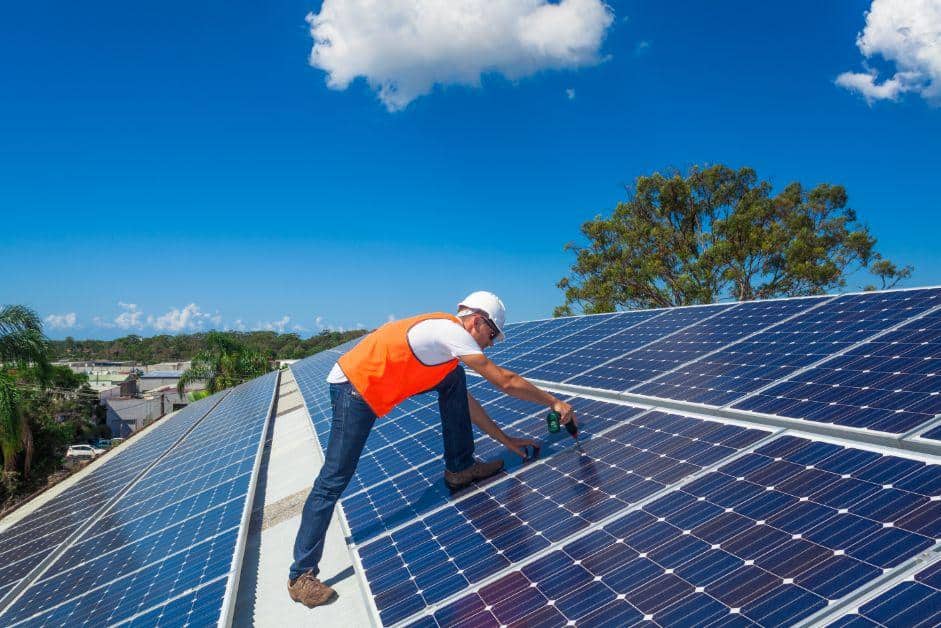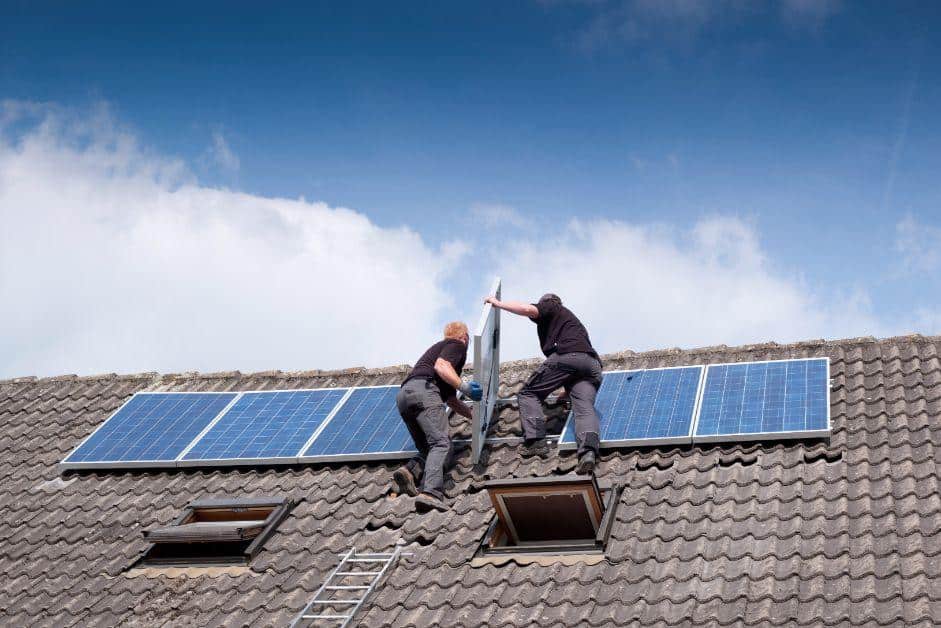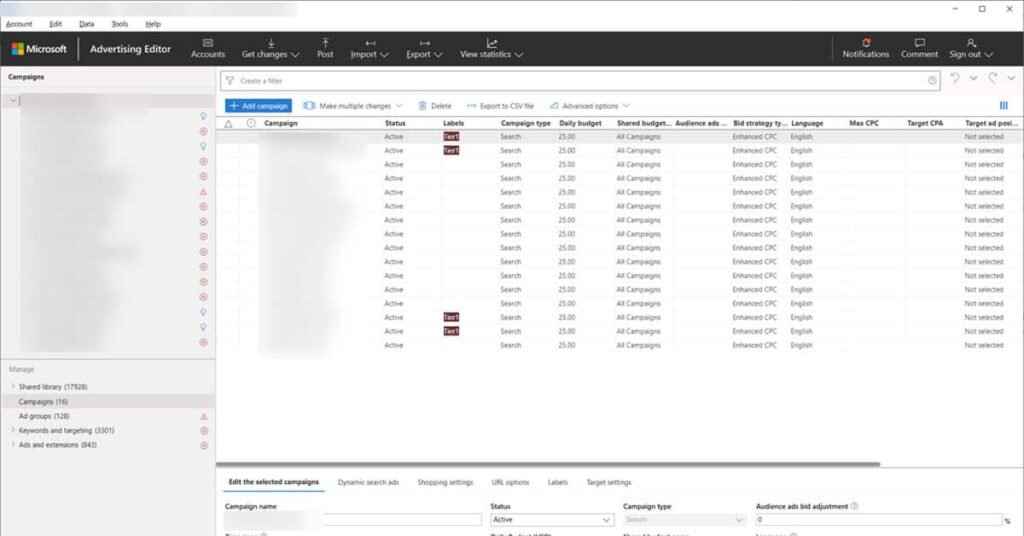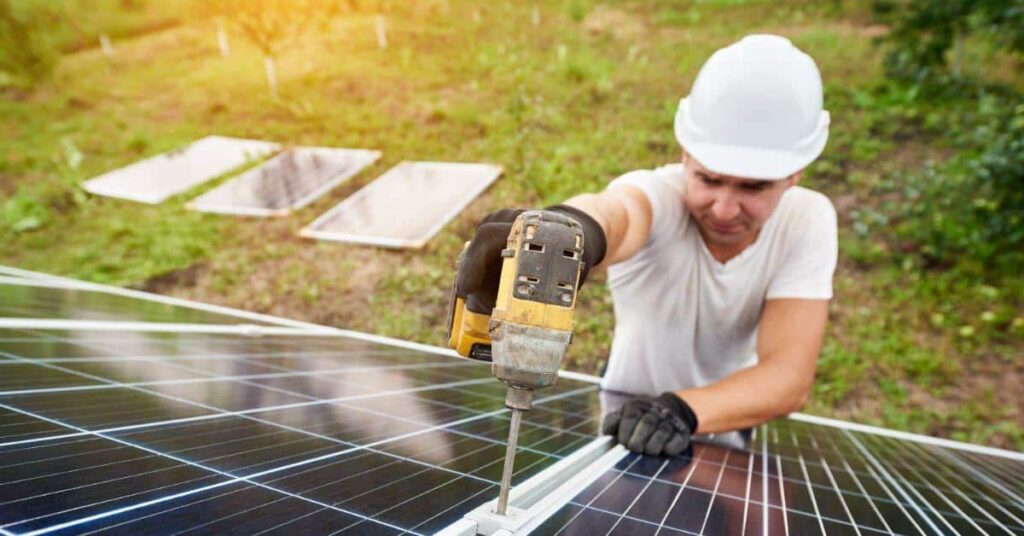Learning How to Install Solar Panels as a Career
Are you interested in the solar industry and wondering where to go for solar installer training and education? Solar photovoltaic installers earn about $48,000 per year. And the industry job outlook shows a 27% increase for the decade between 2021 and 2031.
That’s much faster than the average growth rates for job outlooks. So keep reading to discover your best path toward training programs and a solar technician career.
What Solar Photovoltaic Installers Do
Solar Technicians assemble, install, and maintain solar photovoltaic (PV) systems. In addition, they work with electricians and engineers to comply with the site assessment needs for converting solar power into renewable energy.
Following the location’s schematics, the technician may work on building roofs or other outdoor structures. Furthermore, solar panel installers often do current checks and other minor electrical work.

Solar Panel Installation Can be Both Physically and Mentally Demanding
In addition, they show close attention to detail for measuring and assembling solar modules and systems before connecting them to the power grid. Additional solar panel installer tasks may include:
- Following building standards and codes
- Inspecting electrical wiring installation
- Weather-sealing solar equipment
- Performing routine maintenance on solar panels and systems
- Testing and calibrating operating voltages
Required Solar Installer Skills and Abilities
While many solar technicians receive on-the-job training for up to a year, a specific skill set ensures career success. Workers with the following skills and abilities are the best candidates for solar installer training and education. Roofers are excellent candidates since they’re already comfortable working up high.
- Working at heights, climbing ladders, and prolonged kneeling, bending, or crouching
- Ability to read building schematics and plans, as well as equipment manuals
- Use hand and power tools
- High level of problem-solving skills
- High level of electrical wiring skills
- High level of PV equipment and installation knowledge
The Best Certification for Solar Energy Installers
NABCEP Certification Pathway for Veterans
Some states require that all project workers be certified for the entire solar system to receive solar power subsidies. So becoming a certified energy practitioner is more than simply gaining a piece of paper, as it becomes necessary on some job sites.
The North American Board of Certified Energy Practitioners (NABCEP) is the most widely recognized certification board for renewable energy professionals. Since 2003, they have offered certifications for solar PV installers, which is now called the PV Installation Professional Certification.
According to their website, the NABCEP’s goal is to develop voluntary certification and credentialing programs that will:
- Promote renewable energy
- Provide value to practitioners
- Promote worker safety and skill
- Promote consumer confidence.
Other certification programs include:
- ETA International: Photovoltaic Installer/Designer
- ETA International: Photovoltaic Installer – Level 1 – Related to Military Occupational Specialties
- National Fire Protection Association: Certified Electrical Safety Technician
- Electrical Training Alliance: Solar PV Certification
- Underwriters Laboratories, Inc.: Photovoltaic System Installation Certification
- North American Board of Certified Energy Practitioners: Photovoltaic Associate
What Education Do You Need for Solar Power?
Although on-the-job training is an option, technical school or community college coursework increases your knowledge base and skill set. So you can expect to gain more responsibility and higher wages as a solar photovoltaic installer through both online and in-person class work.
After a high school diploma, PV installers also need classes or apprenticeships to gain certification.

You’ll Need Special Training to Become a Solar Panel Installer
How Do You Learn To Install Solar Panels?
Where can a person go to learn how to install solar power? And are some of these options better than others?
Online and Offline Locations To Learn Solar Installation
You have several options for your path to learning solar installation in the way that makes the most sense for your learning style.
Community College
To learn what you need to know to be a solar installer, consider classes at your local community college in Photovoltaic panel installation and renewable energy training programs. These classes are often some of the most affordable alternatives.
Solar Training Academy
Solar training academy classes are another option. There are over 8,000 training programs for Solar Photovoltaic Installers in the United States, both online and in person. In addition, CareerOneStop, sponsored by the US Department of Labor, has excellent solar installer training partners.
Easily filter its list by location to find a renewable energy program in your city or state. Some training facilities offer 12-week certificates, while other programs provide multi-year coursework. Additionally, learn more about each school to determine whether or not it best meets your needs.
Apprenticeship Programs
Apprenticeship programs are a third way to learn how to install solar panels. For example, Apprenticeship, USA connects career-seekers with employers throughout the United States.
These programs allow workers to gain paid work experience along with classroom instruction. Additionally, many employers cover the cost of credential exams to prepare for their future workforce.
Your local community college may offer apprenticeship information with solar installation companies in your area since they often team up to educate workers.
Online and Offline Locations To Level Up Your Solar Installation Skills
In addition to accreditation opportunities, the NABCEP offers online classes to level up your solar installation skills. You’ll find free training opportunities and paid ones to increase your skills while qualifying you to sit for an exam. Learn the fundamentals or opt to advance your professional skills through advanced-level coursework.
Military Veterans Solar Education Program
The Interstate Renewable Energy Council (IREC) and the Solar Ready Vets program prepare military veterans for lucrative careers in the solar energy industry. Veterans combine skills gained during military service with new training to transition into solar energy positions for 12 weeks of on-the-job training. In addition, veterans may use the GI Bill to defray costs associated with credentialing (NABCEP certification) and solar training programs.
Check Your State’s Requirements for PV System Installers
Individual states often have differing requirements for PV installers in the renewable energy industry. Quickly check the Interstate Renewable Energy Council (IREC) National Solar Licensing Database to verify your home state’s requirements.
These licensing requirements protect installers and consumers by ensuring renewable energy systems have safe installs from qualified solar installers. Additionally, they keep standards high by eliminating unsafe practices. And finally, the licensing requirements often work with the trades to protect employees and their livelihoods.





